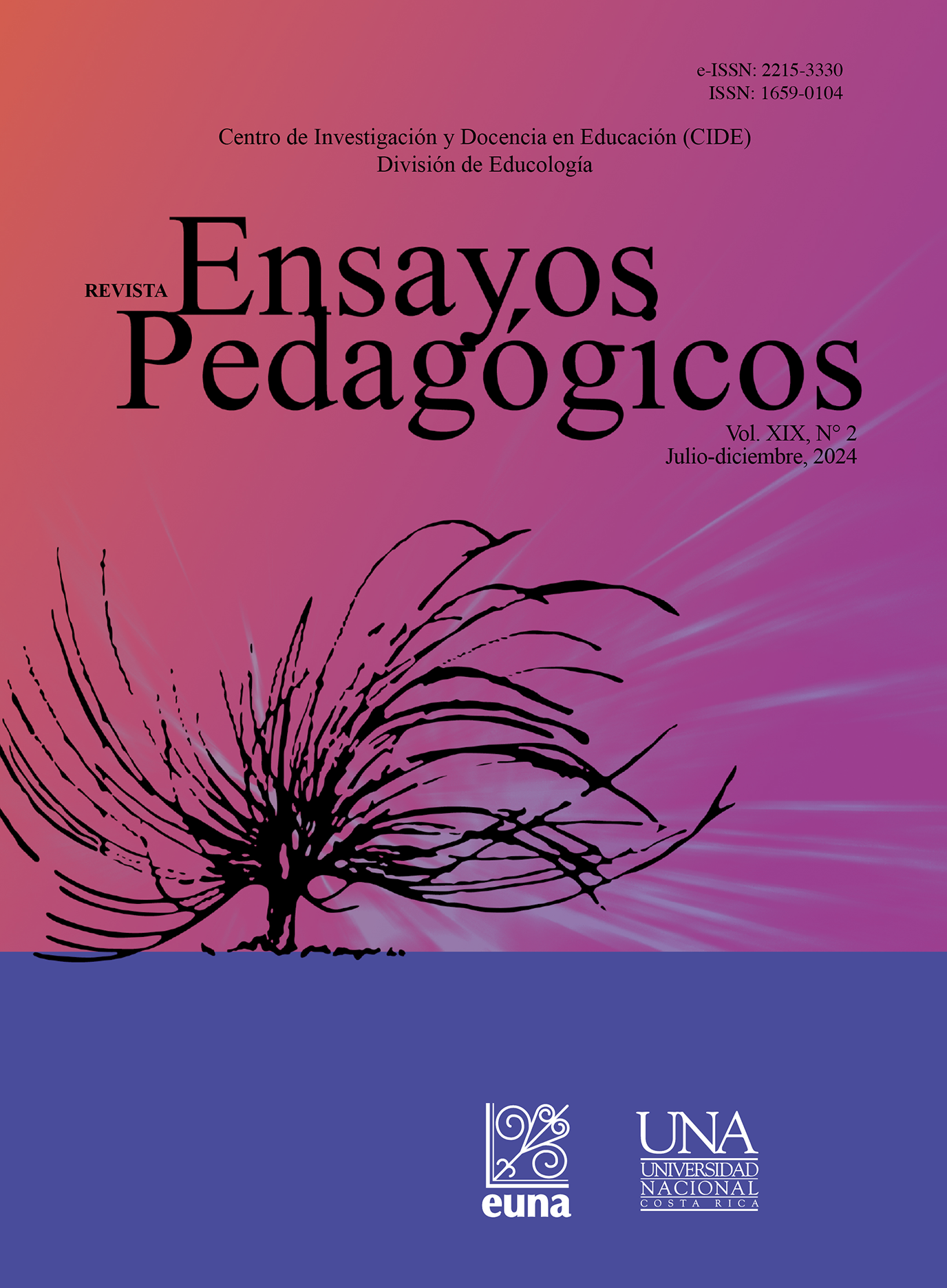Competencias digitales del profesorado de secundaria en matemática de la región Caribe Norte-Costa Rica
DOI:
https://doi.org/10.15359/rep.19-2.8Palabras clave:
competencia digital, formación de docentes, informática educativa, matemática y educación secundariaResumen
En este artículo se analiza cómo los Encuentros Regionales de Enseñanza de la Matemática (EREM), organizados por diversas instituciones educativas en Costa Rica, han influido en las habilidades digitales de los docentes de secundaria que participaron en los eventos entre los años 2011 y 2021. Se enfocó en los participantes más activos en estos encuentros, utilizando el Marco Europeo para la Competencia Digital de los Educadores (DigCompEdu). Los hallazgos muestran niveles significativos de competencia digital, con calificaciones de B1 en Compromiso profesional y Enseñanza y aprendizaje y, de B2 en Contenidos digitales. Sin embargo, se observó un nivel inicial en la competencia de Evaluación y retroalimentación, mediante herramientas digitales. Finalmente, se reconoce la importancia de generar espacios de capacitación docente en el uso de tecnologías, en el aula, para fortalecer las competencias digitales de los profesores de matemática de la región.
Referencias
Almerich, G., Orellana, N., Suárez-Rodríguez, J. y Díaz-García, I. (2016). Teachers’ information and communication technology competences: A structural approach. Computers and Education, 100, 110-125. https://doi.org/10.1016/j.compedu.2016.05.002
Baltodano, M., Trejos, I. y Vargas, L. (2022). Modelo para la Inclusión de Tecnologías Digitales en Educación (MITDE) (1.a ed.). Ministerio de Educación Pública. https://www.mep.go.cr/sites/default/files/2023-10/MITDE.pdf
Cabero-Almenara, J. y Palacios-Rodríguez, A. (2020). Marco Europeo de Competencia Digital Docente «DigCompEdu». Traducción y adaptación del cuestionario «DigCompEdu Check-In». EDMETIC, Revista de Educación Mediática y TIC, 9(1), 2013-2234. https://doi.org/10.21071/edmetic.v9i1.12462
Graham, C. R. (2011). Theoretical considerations for understanding technological pedagogical content knowledge (TPACK). Computers and Education, 57(3), 1953-1960. https://doi.org/10.1016/j.compedu.2011.04.010
Hernández-Sampieri, R. y Mendoza, C. P. (2018). Metodología de la investigación: las rutas cuantitativa cualitativa y mixta. McGraw-Hill Interamericana Editores. http://www.biblioteca.cij.gob.mx/Archivos/Materiales_de_consulta/Drogas_de_Abuso/Articulos/SampieriLasRutas.pdf
ISTE. (2008). The ISTE NETS and Performance Indicators for Teachers. https://www.csun.edu/science/standards/technology/iste.html
Jiménez, M., Espinoza, J. L. y Morales, I. (2011). Capacitación docente en tecnologías digitales para la enseñanza de la matemática. XIII Conferencia Interamericana de Educación Matemática. https://xiii.ciaem-redumate.org/index.php/xiii_ciaem/xiii_ciaem/paper/view/2474
MEP. (2012). Programa de Estudio Matemáticas, I, II y III Ciclos de la Educación General Básica y Ciclo Diversificado. Ministerio de Educación Pública. https://www.mep.go.cr/sites/default/files/media/matematica.pdf
OCDE. (2020). Making the Most of Technology for Learning and Training in Latin America. OCDE. https://doi.org/10.1787/ce2b1a62-en
Programa Estado de la Nación. (2023). Noveno Estado de la Educación 2023. CONARE-PEN. https://estadonacion.or.cr/wp-content/uploads/2023/08/EE-2023-Book-DIGITAL.pdf
Rangel, A. (2015). Competencias docentes digitales: propuesta de un perfil. Píxel-Bit. Revista de Medios y Educación, 46, 235-248. https://www.redalyc.org/pdf/368/36832959015.pdf
Redecker, C. (2020). Marco Europeo para la Competencia Digital de los Educadores: DigCompEdu. Fundación Universia. (Obra original publicada en 2017) https://www.metared.org/content/dam/metared/pdf/marco_europeo_para_la_competencia_digital_de_los_educadores.pdf
Sandí, J. C. y Sanz, C. V. (2018). Revisión y análisis sobre competencias tecnológicas esperadas en el profesorado en Iberoamérica. Edutec. Revista Electrónica de Tecnología Educativa, 66, 93-121. https://doi.org/10.21556/edutec.2018.66.1225
Shulman, L. (1987). Knowledge and teaching: foundations of the new reform. Harvard Educational Review, 57, 1-22. https://doi.org/10.17763/haer.57.1.j463w79r56455411
UNESCO. (2019). Marco de competencias docentes en materia de TIC. UNESCO Publishing. https://unesdoc.unesco.org/ark:/48223/pf0000371024
Verdú-Pina, M., Lázaro-Cantabrana, J. L., Grimalt-Álvaro, C. y Usart, M. (2023). El concepto de competencia digital docente: revisión de la literatura. Revista Electrónica de Investigación Educativa, 25, 1-13. https://doi.org/10.24320/redie.2023.25.e11.4586
Descargas
Publicado
Cómo citar
Número
Sección
Licencia
Derechos de autor 2024 Revista Ensayos Pedagógicos

Esta obra está bajo una licencia internacional Creative Commons Atribución-NoComercial-SinDerivadas 4.0.
La Revista Ensayos Pedagógicos está suscrita a la Licencia Creative Commons Atribución-NoComercial-SinDerivadas 4.0 Internacional, lo cual implica la posibilidad de que tanto las personas autoras como las personas lectoras puedan, de forma gratuita, descargar, almacenar, copiar y distribuir la versión final aprobada y publicada (post print) del artículo, siempre y cuando se realice sin fines comerciales, no se generen obras derivadas y se mencione la fuente y autoría de la obra. Asimismo, la Revista Ensayos Pedagógicos declara que toda persona autora conservará a perpetuidad los derechos de autoría de su ensayo o artículo.









